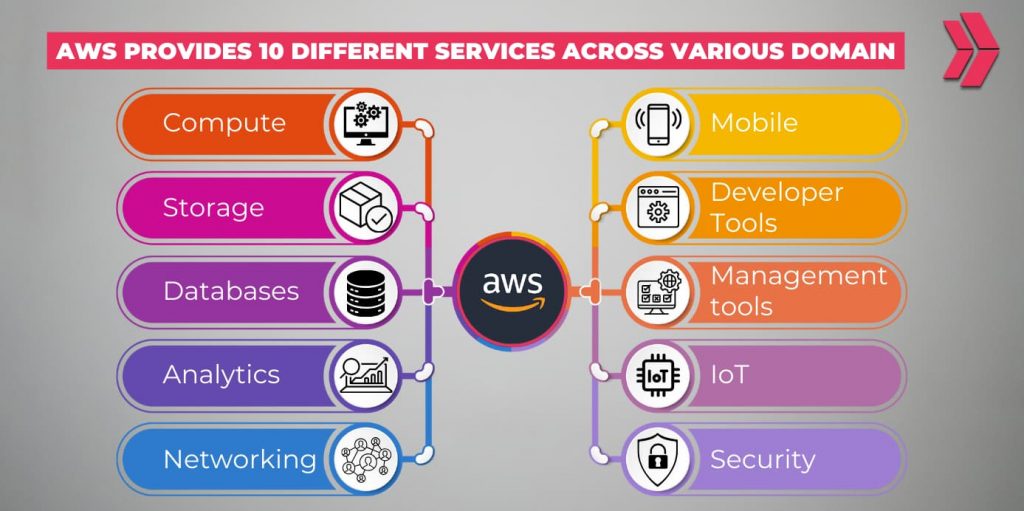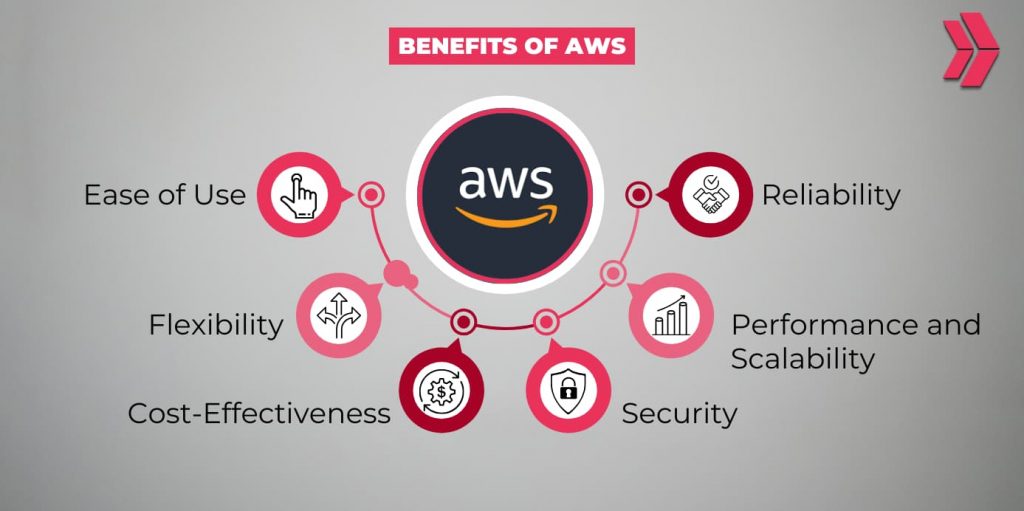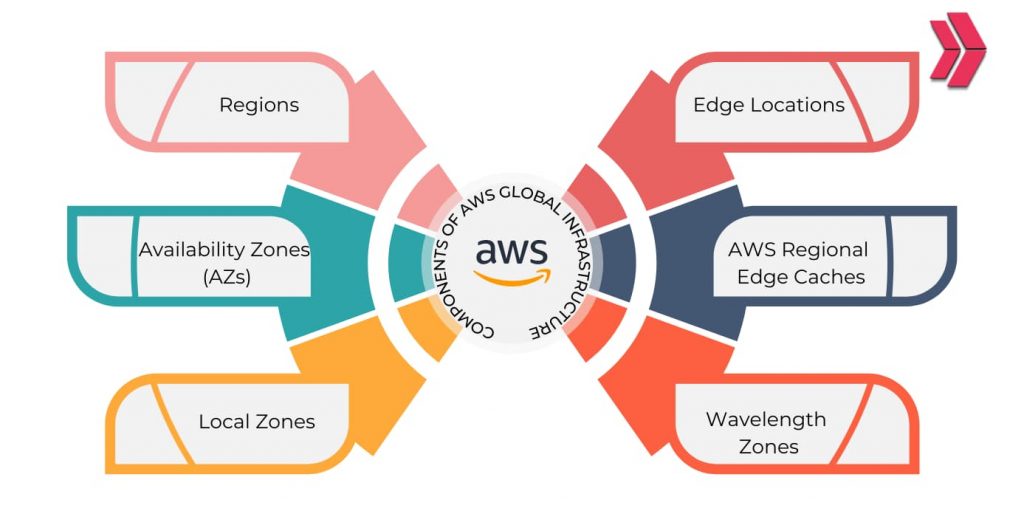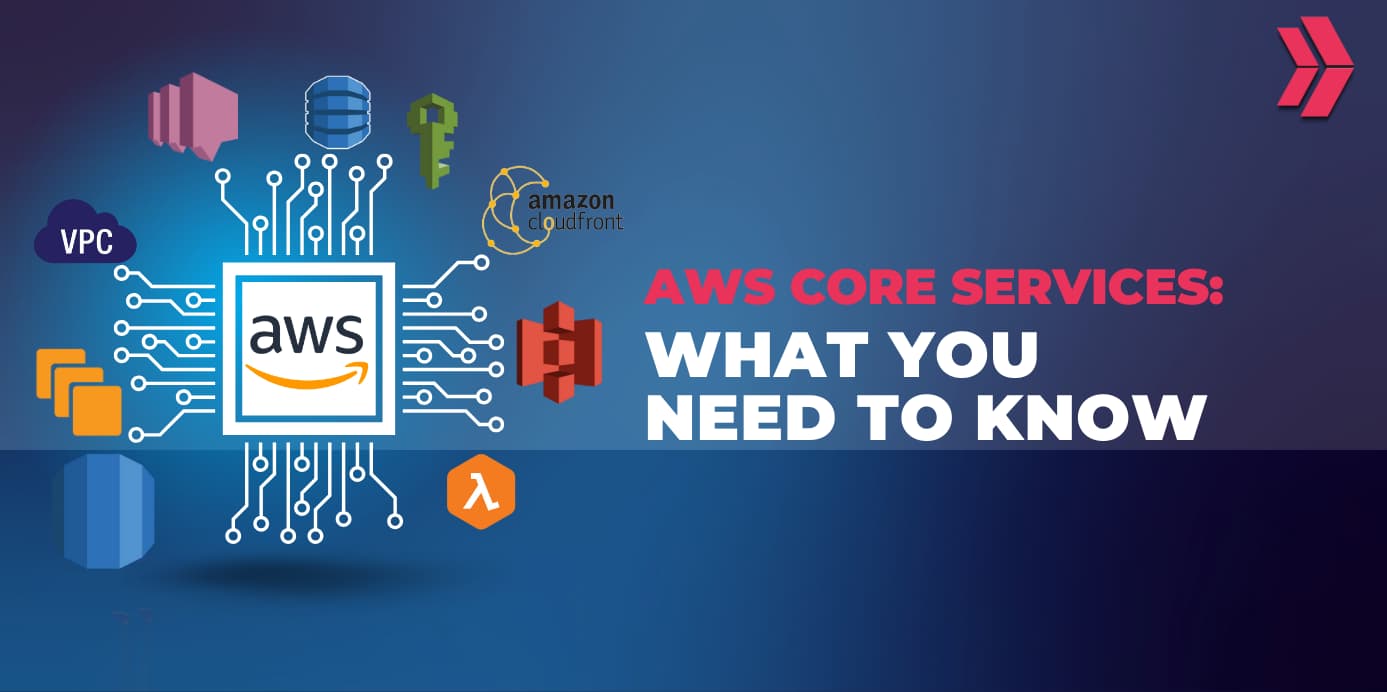For companies looking to become leaders in their market and implement the most significant new technologies, the cloud remains the fundamental transformation platform. According to Gartner, Inc., global expenditure on public cloud services is projected to increase by 20.4%, reaching $675.4 billion in 2024, up from $561 billion in 2023. Among all cloud providers, Amazon Web Services (AWS) stands out with its wide range of solutions for different industries.
Amazon’s success is driven by its innovative strategies and unwavering focus on customer satisfaction. The key reasons for preferring AWS include its flexible architecture, cost-effectiveness, scalability, and reliability.
It’s crucial to understand the unique advantages AWS brings to the table and how it maintains its lead in the market, if you’re curious about the future of cloud computing.
In this blog post, we uncover the secrets behind AWS’s success by responding to the questions of what AWS is, why it is so popular, and what makes it a leader in the IT industry. We also delve into the details of how AWS’s innovation drives its market dominance, how Amazon’s industry dominance is sustainable by its global infrastructure, and how AWS’s global infrastructure supports its industry dominance.

What is AWS, and Why is it So Popular?
Amazon Web Services (AWS) is Amazon’s all-inclusive cloud computing marketplace, offering a wide range of cloud computing models and deployment tools. Since starting to provide IT infrastructure services to businesses in 2006, AWS has offered various cloud services such as database storage, security, compliance, analytics, computing, networking, application management, IoT, developer tools, productivity tools, streaming platforms, and business applications.
With its pay-as-you-go pricing model, AWS allows businesses to scale comprehensively without needing upfront capital expenditures, instead benefiting from low and variable costs. This flexibility enables organizations to launch hundreds of servers within minutes, managing their IT infrastructure quickly and efficiently without the need for long-term planning and purchasing.
AWS’s market leadership can be due to several major factors. One of the most significant advantages is its diverse range of services, which meet a variety of technological requirements. AWS has solutions for practically every need, ranging from basic virtual servers to complex machine-learning capabilities.
In terms of dependability and global reach, AWS outperforms its competitors. It runs a massive network of data centers in numerous geographic zones, delivering seamless and redundant services via its worldwide infrastructure.
What is AWS (Amazon Web Services)?
Simply, Amazon Web Services (AWS) is Amazon’s cloud computing platform. It has a massive data center network and resources strategically distributed around the world to deliver cloud services. The AWS Global Infrastructure includes 102 Availability Zones spanning across 32 geographic regions worldwide.
AWS provides 10 different services across various domains:
- Compute,
- Storage,
- Databases,
- Analytics,
- Networking,
- Mobile,
- Developer tools,
- Management tools,
- IoT,
- Security.

What Makes AWS a Leader in the IT Industry?
AWS stands out as a leader in the IT industry for its flexible and comprehensive services. From basic hosting to advanced AI solutions, AWS offers essential tools to support all aspects of a digital business. The main feature of AWS is its emphasis on Infrastructure as a Service (IaaS), which is backed by its Relational Database Service (Amazon RDS for databases), Simple Storage Service (Amazon S3 for storage), and Elastic computation Service (Amazon EC2 for computation).
Here are the 6 advantages that continue to position AWS as a leader in the IT industry:
- Ease of Use
- Flexibility
- Cost-Effectiveness
- Security
- Performance and Scalability
- Reliability

Ease of Use:
AWS is built to enable application providers and independent software vendors to host applications swiftly and securely.
Flexibility:
AWS allows users to select their preferred operating system, programming language, web application platform, database, and other services, providing a solution for every need and allowing them to build the ideal infrastructure.
Cost-Effectiveness:
AWS charges users only for the computing power, storage, and other resources they utilize, making it an economical choice.
Security:
AWS provides top-notch, end-to-end security across all services and data centers, regardless of the company’s size.
Performance and Scalability:
AWS’s robust infrastructure allows users to scale resources up or down according to demand.
Reliability:
AWS ensures a scalable, secure global infrastructure that minimizes downtime, quickly recovers from failures, and dynamically allocates resources to meet demand and reduce disruptions.
The above list summarizes AWS’s benefits. Its user-friendly interface, affordable pricing, scalability, high security, and performance make AWS an attractive choice for companies seeking cloud computing services.
How Does AWS’s Innovation Drive Its Market Dominance?
AWS’s leadership in the cloud computing market is driven by its commitment to innovation. AWS continually expands its service offerings and introduces new technologies to meet the evolving needs of businesses. This enables companies to use the latest technologies without requiring specialized expertise. By staying ahead of industry trends and addressing emerging demands, Amazon AWS maintains its competitive edge.
AWS’s extensive global infrastructure is also a significant factor. By operating data centers in many regions, it provides low latency and high availability. AWS excels in security and compliance as well. With advanced security measures, it ensures that its services comply with the most stringent legal and data protection regulations.
What Are the Core Services Offered by AWS?
AWS provides a variety of core services to meet diverse cloud computing needs. These include Amazon EC2, which enables scalable virtual server management for dynamic application workloads. Amazon S3 offers a robust solution for data storage, supporting backups, and large-scale data management. Additionally, Amazon RDS facilitates easy setup and management of relational databases, ensuring secure and reliable operation.
Here is a list of the 7 core Services offered by AWS:
- Virtual Private Cloud (VPC): VPC enables safely starting AWS services on your own virtual cloud and offers secure IPv4 and IPv6 connectivity.
- Identity Access Management (IAM): IAM controls individual and group access to cloud services while managing and securing access to AWS services and resources.
- Route 53: Route 53 is AWS’s DNS service.
- Elastic Compute Cloud (EC2): Users can rent virtual computers with configurable CPUs, storage, networks, and operating systems through EC2.
- Relational Database System (RDS): RDS supports PostgreSQL, MySQL, MariaDB, Oracle, SQL Server, and Amazon Aurora and makes it easier to create relational databases.
- Simple Storage Service (S3): S3 is used to store static items, such as text, pictures, and videos. Items are kept in designated zones in virtual buckets.
- CloudFront: AWS’s high-speed CDN service delivers data, videos, and other static files quickly and scalably to users around the world.
How Does AWS’s Global Infrastructure Support Its Industry Dominance?
AWS’s global infrastructure plays a crucial role in its industry dominance. Amazon offers low latency and high availability features through its global network of data centers spread across different availability zones. This extensive network of data centers ensures that businesses can operate seamlessly and reliably, regardless of their geographic location. By offering a distributed and resilient infrastructure, AWS supports its position as a leading cloud service provider.
The AWS Global Infrastructure consists of the following 6 parts:
- Regions
- Availability Zones (AZs)
- Local Zones
- Edge Locations
- AWS Regional Edge Caches
- Wavelength Zones

One of the safest, most comprehensive, and most reliable cloud systems is the AWS Global Cloud Infrastructure, which distributes workloads globally for low-latency content delivery to end users. It guarantees fault tolerance and high availability for small and medium-sized enterprises. AWS Global Infrastructure offers protection against disruptions and quick reaction times by distributing your applications across several data centers, thanks to the hundreds of servers and network devices that are in operation in data centers all over the world.
Conclusion
AWS’s comprehensive service offerings, relentless innovation, and robust global infrastructure have solidified its position as the leader in cloud computing. AWS is transforming the IT sector by offering scalable, affordable, and sustainable solutions to enterprises.
As many organizations increasingly adopt cloud technologies, the importance of experienced people familiar with AWS and cloud systems is also increasing. For those new to the field of cloud computing or IT professionals who are seeking to enhance their existing skills with the latest technologies, enrolling in an AWS course can provide invaluable knowledge and skills.




